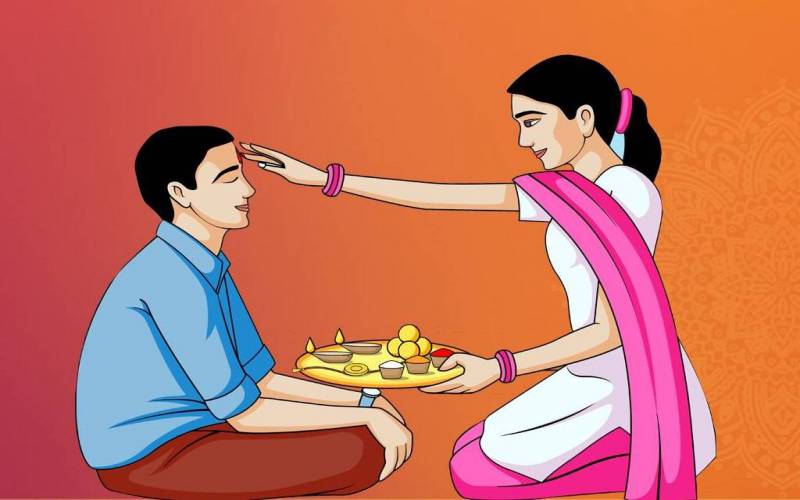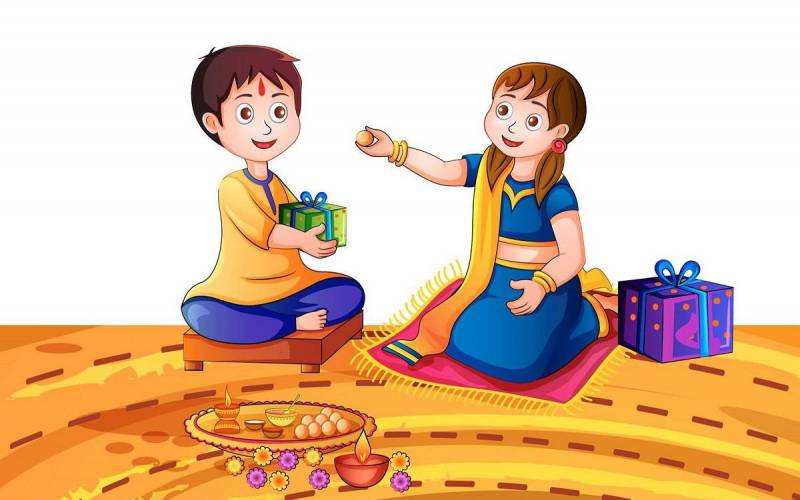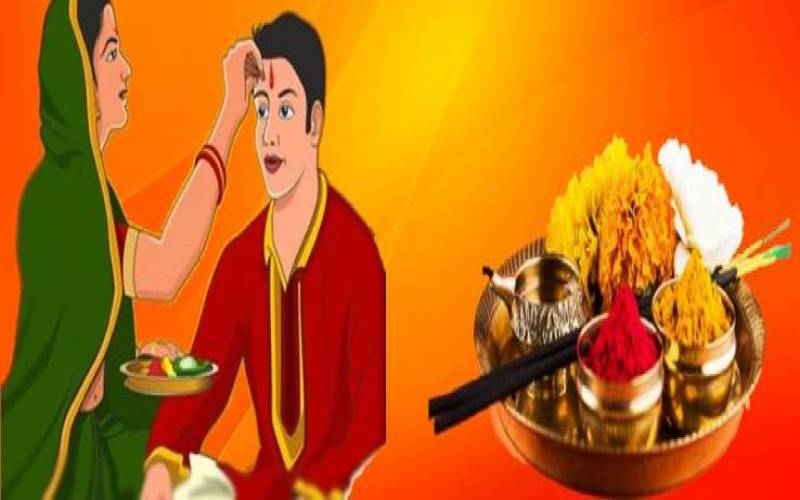Bhai Dooj Festival, India
In Hinduism, brothers and sisters celebrate Bhaiya Dooj, or Bhai Dooj festival, as an expression of their unconditional love. Sisters pray to God for the longevity, prosperity and wellbeing of their brother on this day. By presenting their brothers with a thali of sweets, rolis, and coconut, the sisters commemorate the occasion with tilaks or vermillion marks on their foreheads, followed by an aarti for them. They then sweeten their mouths with sweets, and in return, their brothers lavish their sisters with gifts. The festival is celebrated on the very last day of the five-day-long festival of Diwali. According to the Gregorian calendar, the festival occurs on the second day of Shukla Paksha in the Hindu month of Kartik, which usually falls between October and November each year.
Different parts of the country celebrate Bhai Dooj differently, and the event is linked to numerous folklore stories. In this festival, a tilak is placed on the forehead of the brother, and a mantra is chanted while the sisters apply the tilak. Furthermore, in Haryana the dry coconut is tied with the kalawa thread and offered together with the ritual of tilak during aarti. During this day, Hindus recognize the special bond between brother and sister. The occasion commemorates both the bonding between two opposite-sex siblings as well as providing protection against evil forces and bringing new hope and prosperity to their lives.
According to Hindu mythology, there are a few stories that explain the origin of this auspicious day. Legend has it that Krishna visited Subhadra following his defeat of the evil demon Narakasura. He was welcomed with sweets and flowers by Subhadra. He was then adorned with a ceremonial tilak on his forehead. This is thought to have been the origin of the Bhai Dooj festival.


